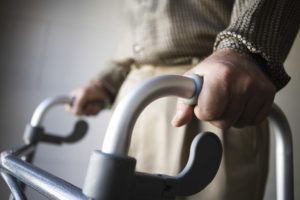The recent Surgeon General’s report found that an estimated one in seven U.S. adults will face addiction at some point in their lives. No is immune from developing this disease. It happens to men, women, the young, and the elderly. There are many different risk factors for addiction, as well as protective factors that can mitigate the risk of becoming addicted to drugs or alcohol. But for the physically disabled, these individuals may face more significant risk factors and barriers to treatment than the general population. For people with a physical disability that causes chronic pain, they may be at higher risk of abusing painkillers. When treating an individual with a chronic pain disorder for addiction, they need specialized care that accounts for their unique medical needs.
What risk factors for addiction may be more pronounced for disabled people?
The risk factors for addiction facing the physically disabled will differ depending on the type of disability a person has. Some physical disabilities may result in limited mobility and an inability to maintain employment. For these individuals, the social isolation that can result may increase their chances of turning to drugs or alcohol to cope with the lack of support and friendship. In other cases, chronic pain may accompany a physical disability. For these people, relying on a prescription narcotics to deal with pain may increase their chances of becoming psychologically dependent and addicted to the drug.
Many of the same risk factors that increase a non-disabled person’s chances of becoming addicted are the same for disabled persons. However, the disabled may face more of these risk factors at worse, or have to cope with greater severity of risk factors. Economic stress is a major trigger for substance abuse, but the disabled may face economic uncertainty and poverty at more frequent, intense levels than someone who is not dealing with a physical health issue. The physically disabled also face higher risks of becoming a victim of abuse, and they may turn to drugs or alcohol to cope with the trauma of these situations. Other risk factors for drug abuse facing the physically disabled include:
 addiction?
addiction?



